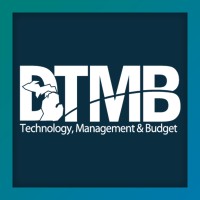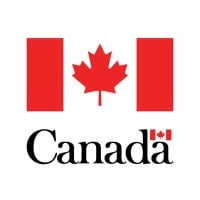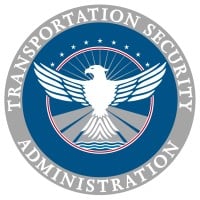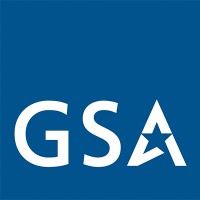Company Details
michigandtmb
1,471
10,284
92
michigan.gov
0
MIC_3930168
In-progress

Michigan Department of Technology, Management and Budget Company CyberSecurity Posture
michigan.govOur mission at The Department of Technology, Management & Budget (DTMB) is to optimize enterprise-wide business, financial, and technical services to enable a government that works. DTMB impacts every area of Michigan government and our broad spectrum of responsibilities include: technology, labor market information, facilities, financial services, procurement, retirement services, real estate, the Michigan public safety communication system, and fleet and records management. Every day the contributions and achievements of DTMB employees have a direct impact on over 10 million Michiganders across the state. If you're looking for a fulfilling career in state government that can make a real difference in the lives of others, you can find your place working with us. We have opportunities in a number of career pathways, including, but not limited to, business and administrative support, finance, IT and computers, skilled trades and more. Join our team for an: - Opportunity to make a difference - Challenging and rewarding work - Competitive salaries - Fun working environment - Great benefits (community service, vacation and sick leave, paid holidays, paid parental leave, longevity bonuses) - Job stability and career advancement - Flexible alternative and remote work schedules - Tuition discounts and student loan forgiveness - Professional development/training - Employee discount plan From urban centers to beach towns to the great outdoors, the opportunities are endless in Pure Michigan. With your DTMB salary and benefits and Michigan’s affordable cost of living, you can explore all that Michigan has to offer. Ready to join our team? Visit www.Michigan.gov/DTMBCareers to learn more and find your next opportunity! #MiGovJobs #DTMBCareers #DTMBCares #HelpConnectSolve
Company Details
michigandtmb
1,471
10,284
92
michigan.gov
0
MIC_3930168
In-progress
Between 650 and 699

 MDTMB Global Score (TPRM)
MDTMB Global Score (TPRM)XXXX

Description: The article highlights a legislative push in Michigan to address systemic vulnerabilities in consumer data protection following widespread concerns over identity theft and data breaches. The proposed bipartisan bills aim to enforce stricter safeguards for entities collecting or accessing personal data, mandating timely breach investigations and consumer notifications. The delay in passing these laws—stalled in the House despite Senate approval—exposes Michiganders to prolonged risks of personal data exposure, including financial records, Social Security numbers, and other sensitive information. The lack of enforcement mechanisms leaves consumers vulnerable to breaches where attackers could exploit unsecured databases, leading to large-scale leaks of personal or financial data. The described scenario aligns with systemic failures in accountability, where delayed regulations increase the likelihood of attacks targeting government-held citizen data (e.g., Medicaid, SNAP recipients). While no specific breach is cited, the legislative gap suggests an elevated risk of attacks with severe reputational, financial, and operational consequences for both the state and its residents. The potential for mass data leaks—affecting thousands—underscores the urgency of the unaddressed threat.


Michigan Department of Technology, Management and Budget has 53.85% more incidents than the average of same-industry companies with at least one recorded incident.
Michigan Department of Technology, Management and Budget has 56.25% more incidents than the average of all companies with at least one recorded incident.
Michigan Department of Technology, Management and Budget reported 1 incidents this year: 0 cyber attacks, 0 ransomware, 0 vulnerabilities, 1 data breaches, compared to industry peers with at least 1 incident.
MDTMB cyber incidents detection timeline including parent company and subsidiaries

Our mission at The Department of Technology, Management & Budget (DTMB) is to optimize enterprise-wide business, financial, and technical services to enable a government that works. DTMB impacts every area of Michigan government and our broad spectrum of responsibilities include: technology, labor market information, facilities, financial services, procurement, retirement services, real estate, the Michigan public safety communication system, and fleet and records management. Every day the contributions and achievements of DTMB employees have a direct impact on over 10 million Michiganders across the state. If you're looking for a fulfilling career in state government that can make a real difference in the lives of others, you can find your place working with us. We have opportunities in a number of career pathways, including, but not limited to, business and administrative support, finance, IT and computers, skilled trades and more. Join our team for an: - Opportunity to make a difference - Challenging and rewarding work - Competitive salaries - Fun working environment - Great benefits (community service, vacation and sick leave, paid holidays, paid parental leave, longevity bonuses) - Job stability and career advancement - Flexible alternative and remote work schedules - Tuition discounts and student loan forgiveness - Professional development/training - Employee discount plan From urban centers to beach towns to the great outdoors, the opportunities are endless in Pure Michigan. With your DTMB salary and benefits and Michigan’s affordable cost of living, you can explore all that Michigan has to offer. Ready to join our team? Visit www.Michigan.gov/DTMBCareers to learn more and find your next opportunity! #MiGovJobs #DTMBCareers #DTMBCares #HelpConnectSolve


The Government of Canada works on behalf of Canadians, both at home and abroad. Visit www.Canada.ca to learn more. Canada’s professional, non-partisan public service is among the best in the world, and many of its departments and agencies place in Canada’s Top 100 Employers year after year. If you

The Transportation Security Administration (TSA) is a component agency of the U.S. Department of Homeland Security (DHS), committed to securing the nation’s transportation systems to ensure safe and efficient travel for all. Our mission is to protect the American people by preventing threats and dis

Build the Missouri of tomorrow. Ensure a strong foundation today. Join a group of innovative team members focused on driving the State of Missouri forward. As public servants, our team members have the opportunity to produce work that is both lasting and important. This work serves to protect famil

Welcome! We're the National Oceanic & Atmospheric Administration or NOAA. From daily weather forecasts, severe storm warnings and climate monitoring to fisheries management, coastal restoration and supporting marine commerce, our products and services support economic vitality and affect more than

Working for Switzerland Seven departments, the Federal Chancellery and around 70 administrative units make up the Federal Administration. With around 38,000 employees, it is one of the largest employers in Switzerland. People from all regions of the country work in the Federal Administration un

MINISTRY of ENVIRONMENT and URBANISM (MEU) MAIN SERVICE UNITS ================== 1) General Directorate of Construction Works 2) General Directorate of Spatial Planning 3) General Directorate of Environmental Management 4) General Directorate of EIA, Permits and Control 5) General Directo

Op vrijwel alle werkterreinen en functieniveaus biedt de Rijksoverheid leuke en boeiende banen. Vacatures zijn bovendien in heel Nederland te vinden. Waar voor jou precies de mogelijkheden liggen hangt onder andere samen met je vooropleiding. Zowel met een mbo- of hbo-diploma als met een universitai

General Services Administration (GSA) is an independent agency of the United States government established in 1949 to help manage and support the basic functioning of federal agencies. Our organization includes the Public Buildings Service (PBS), Federal Acquisition Service (FAS), and a variety of S

U.S. Environmental Protection Agency’s (EPA) mission is to protect human health and the environment. EPA works to ensure that: - Americans have clean air, land and water; - National efforts to reduce environmental risks are based on the best available scientific information; - Federal laws protecti
.png)
NOVI, Mich. — On Oct. 23, the 2025 Michigan Cyber Summit drew more than 600 cybersecurity experts to discuss solutions to protect Michigan...
The 2025 Michigan Cyber Summit will be held Oct. 23 at the Suburban Collection Showplace in Novi. Michigan is recognized as a national...
LANSING, Mich. – The Michigan Department of Technology, Management & Budget (DTMB) has selected the official 2025 state Christmas tree,...
LANSING, Mich. – Earlier this week, the State of Michigan was recognized again as a top five state for creating and delivering user-centric...
The Michigan Department of Technology, Management & Budget announced that registration is now open for the 2025 Michigan Cyber Summit and...
Department of Technology, Management & Budget State departments to celebrate 13th annual Michigan Social Media Day June 30 June 30, 2025
The storms that hit Michigan this spring serve as important reminders about the vital importance that the Michigan Department of Technology,...
According to a study, 2200 cyberattacks occur daily—one every 39 seconds. As businesses rapidly evolve, the demand for speed, scalability,...
Cybersecurity experts share potential impacts and implications of Trump administration's access to highly sensitive data. LANSING, Mich.

Explore insights on cybersecurity incidents, risk posture, and Rankiteo's assessments.
The official website of Michigan Department of Technology, Management and Budget is http://www.Michigan.gov/DTMBcareers.
According to Rankiteo, Michigan Department of Technology, Management and Budget’s AI-generated cybersecurity score is 696, reflecting their Weak security posture.
According to Rankiteo, Michigan Department of Technology, Management and Budget currently holds 0 security badges, indicating that no recognized compliance certifications are currently verified for the organization.
According to Rankiteo, Michigan Department of Technology, Management and Budget is not certified under SOC 2 Type 1.
According to Rankiteo, Michigan Department of Technology, Management and Budget does not hold a SOC 2 Type 2 certification.
According to Rankiteo, Michigan Department of Technology, Management and Budget is not listed as GDPR compliant.
According to Rankiteo, Michigan Department of Technology, Management and Budget does not currently maintain PCI DSS compliance.
According to Rankiteo, Michigan Department of Technology, Management and Budget is not compliant with HIPAA regulations.
According to Rankiteo,Michigan Department of Technology, Management and Budget is not certified under ISO 27001, indicating the absence of a formally recognized information security management framework.
Michigan Department of Technology, Management and Budget operates primarily in the Government Administration industry.
Michigan Department of Technology, Management and Budget employs approximately 1,471 people worldwide.
Michigan Department of Technology, Management and Budget presently has no subsidiaries across any sectors.
Michigan Department of Technology, Management and Budget’s official LinkedIn profile has approximately 10,284 followers.
Michigan Department of Technology, Management and Budget is classified under the NAICS code 92, which corresponds to Public Administration.
No, Michigan Department of Technology, Management and Budget does not have a profile on Crunchbase.
Yes, Michigan Department of Technology, Management and Budget maintains an official LinkedIn profile, which is actively utilized for branding and talent engagement, which can be accessed here: https://www.linkedin.com/company/michigandtmb.
As of November 27, 2025, Rankiteo reports that Michigan Department of Technology, Management and Budget has experienced 1 cybersecurity incidents.
Michigan Department of Technology, Management and Budget has an estimated 11,114 peer or competitor companies worldwide.
Incident Types: The types of cybersecurity incidents that have occurred include Breach.
Detection and Response: The company detects and responds to cybersecurity incidents through an communication strategy with public announcements via legislative updates, media outreach, and stakeholder engagement to raise awareness about the bills and their benefits...
Title: Michigan Bipartisan Data Breach Legislation and Accountability Measures
Description: A bipartisan bill package in Michigan aims to enforce stronger safeguards for companies handling personal data, mandating investigations and consumer notifications in case of security breaches. The legislation also empowers the Attorney General’s office to respond, investigate breaches, and hold violators accountable. The bills, passed unanimously in the Senate, are currently stalled in the House. The focus is on preventing identity theft and protecting Michiganders' personal privacy by increasing corporate accountability for data misuse.
Type: Legislative Initiative
Motivation: Prevent identity theft and protect consumer privacy by strengthening data breach accountability and corporate safeguards.
Common Attack Types: The most common types of attacks the company has faced is Breach.

Brand Reputation Impact: Potential improvement due to proactive legislative measures for consumer protection.
Legal Liabilities: Increased for companies failing to comply with breach notification and safeguard requirements.
Identity Theft Risk: Reduction targeted through stricter corporate accountability and breach response protocols.

Entity Name: Michigan State Government
Entity Type: Government
Industry: Public Administration
Location: Michigan, USA
Customers Affected: All Michigan residents (potential beneficiaries of the legislation)

Entity Name: Companies Collecting/Owning/Accessing Personal Data in Michigan
Entity Type: Private Sector
Industry: Retail, Healthcare, Finance, Technology, Education, Other
Location: Michigan, USA

Communication Strategy: Public announcements via legislative updates, media outreach, and stakeholder engagement to raise awareness about the bills and their benefits.

Regulatory Notifications: Proposed legislation would mandate breach notifications to consumers and empower the Attorney General’s office for enforcement.

Lessons Learned: Proactive legislative measures are critical to mitigating identity theft risks and holding corporations accountable for data breaches. Bipartisan support is achievable for consumer protection initiatives, though political stalling (e.g., in the House) can delay progress.

Recommendations: Pass the stalled bipartisan bills in the Michigan House to enforce stronger data safeguards and breach notifications., Empower the Attorney General’s office with tools to investigate breaches and penalize violators., Engage stakeholders (community members, subject-matter experts) to refine and advance consumer protection policies., Monitor federal policies (e.g., OBBBA) for potential impacts on state-level data privacy and budgetary resources.Pass the stalled bipartisan bills in the Michigan House to enforce stronger data safeguards and breach notifications., Empower the Attorney General’s office with tools to investigate breaches and penalize violators., Engage stakeholders (community members, subject-matter experts) to refine and advance consumer protection policies., Monitor federal policies (e.g., OBBBA) for potential impacts on state-level data privacy and budgetary resources.Pass the stalled bipartisan bills in the Michigan House to enforce stronger data safeguards and breach notifications., Empower the Attorney General’s office with tools to investigate breaches and penalize violators., Engage stakeholders (community members, subject-matter experts) to refine and advance consumer protection policies., Monitor federal policies (e.g., OBBBA) for potential impacts on state-level data privacy and budgetary resources.Pass the stalled bipartisan bills in the Michigan House to enforce stronger data safeguards and breach notifications., Empower the Attorney General’s office with tools to investigate breaches and penalize violators., Engage stakeholders (community members, subject-matter experts) to refine and advance consumer protection policies., Monitor federal policies (e.g., OBBBA) for potential impacts on state-level data privacy and budgetary resources.
Key Lessons Learned: The key lessons learned from past incidents are Proactive legislative measures are critical to mitigating identity theft risks and holding corporations accountable for data breaches. Bipartisan support is achievable for consumer protection initiatives, though political stalling (e.g., in the House) can delay progress.

Source: Michigan Senate Democrats - Protecting Michiganders’ Personal Privacy
URL: https://www.senatedems.com/protecting-michiganders-personal-privacy/

Source: Michigan Senate Democrats - Senate Hearing on OBBBA Impacts
Additional Resources: Stakeholders can find additional resources on cybersecurity best practices at and Source: Michigan Senate Democrats - Protecting Michiganders’ Personal PrivacyUrl: https://www.senatedems.com/protecting-michiganders-personal-privacy/, and Source: Michigan Senate Democrats - Senate Hearing on OBBBA ImpactsUrl: https://www.senatedems.com/senate-hearing-uplifts-consequences-of-trumps-big-beautiful-bill-on-michiganders/.

Investigation Status: Legislative (bills passed in Senate, stalled in House). No active incident investigation; focus is on preventive policy.
Communication of Investigation Status: The company communicates the status of incident investigations to stakeholders through Public announcements via legislative updates, media outreach and and stakeholder engagement to raise awareness about the bills and their benefits..

Stakeholder Advisories: Community members, advocacy organizations, healthcare providers, and educational institutions testified on the impacts of federal cuts (OBBBA) and the need for state-level data protections.
Customer Advisories: Consumers are advised to stay informed about the legislative progress and advocate for the passage of the bills to enhance their data privacy protections.
Advisories Provided: The company provides the following advisories to stakeholders and customers following an incident: were Community members, advocacy organizations, healthcare providers, and educational institutions testified on the impacts of federal cuts (OBBBA) and the need for state-level data protections. and Consumers are advised to stay informed about the legislative progress and advocate for the passage of the bills to enhance their data privacy protections..

Root Causes: Lack of stringent corporate accountability and breach notification requirements in existing laws; political delays in passing consumer protection legislation.
Corrective Actions: Advance The Bipartisan Bill Package To Enforce Data Safeguards And Breach Notifications., Equip The Attorney General’S Office With Investigative And Enforcement Tools., Address Federal Policy Impacts (E.G., Obbba) That May Undermine State-Level Protections.,
Corrective Actions Taken: The company has taken the following corrective actions based on post-incident analysis: Advance The Bipartisan Bill Package To Enforce Data Safeguards And Breach Notifications., Equip The Attorney General’S Office With Investigative And Enforcement Tools., Address Federal Policy Impacts (E.G., Obbba) That May Undermine State-Level Protections., .
Most Significant Lesson Learned: The most significant lesson learned from past incidents was Proactive legislative measures are critical to mitigating identity theft risks and holding corporations accountable for data breaches. Bipartisan support is achievable for consumer protection initiatives, though political stalling (e.g., in the House) can delay progress.
Most Significant Recommendation Implemented: The most significant recommendation implemented to improve cybersecurity was Pass the stalled bipartisan bills in the Michigan House to enforce stronger data safeguards and breach notifications., Monitor federal policies (e.g., OBBBA) for potential impacts on state-level data privacy and budgetary resources., Engage stakeholders (community members, subject-matter experts) to refine and advance consumer protection policies. and Empower the Attorney General’s office with tools to investigate breaches and penalize violators..
Most Recent Source: The most recent source of information about an incident are Michigan Senate Democrats - Protecting Michiganders’ Personal Privacy and Michigan Senate Democrats - Senate Hearing on OBBBA Impacts.
Most Recent URL for Additional Resources: The most recent URL for additional resources on cybersecurity best practices is https://www.senatedems.com/protecting-michiganders-personal-privacy/, https://www.senatedems.com/senate-hearing-uplifts-consequences-of-trumps-big-beautiful-bill-on-michiganders/ .
Current Status of Most Recent Investigation: The current status of the most recent investigation is Legislative (bills passed in Senate, stalled in House). No active incident investigation; focus is on preventive policy..
Most Recent Stakeholder Advisory: The most recent stakeholder advisory issued was Community members, advocacy organizations, healthcare providers, and educational institutions testified on the impacts of federal cuts (OBBBA) and the need for state-level data protections., .
Most Recent Customer Advisory: The most recent customer advisory issued was an Consumers are advised to stay informed about the legislative progress and advocate for the passage of the bills to enhance their data privacy protections.
.png)
Angular is a development platform for building mobile and desktop web applications using TypeScript/JavaScript and other languages. Prior to versions 19.2.16, 20.3.14, and 21.0.1, there is a XSRF token leakage via protocol-relative URLs in angular HTTP clients. The vulnerability is a Credential Leak by App Logic that leads to the unauthorized disclosure of the Cross-Site Request Forgery (XSRF) token to an attacker-controlled domain. Angular's HttpClient has a built-in XSRF protection mechanism that works by checking if a request URL starts with a protocol (http:// or https://) to determine if it is cross-origin. If the URL starts with protocol-relative URL (//), it is incorrectly treated as a same-origin request, and the XSRF token is automatically added to the X-XSRF-TOKEN header. This issue has been patched in versions 19.2.16, 20.3.14, and 21.0.1. A workaround for this issue involves avoiding using protocol-relative URLs (URLs starting with //) in HttpClient requests. All backend communication URLs should be hardcoded as relative paths (starting with a single /) or fully qualified, trusted absolute URLs.
Forge (also called `node-forge`) is a native implementation of Transport Layer Security in JavaScript. An Uncontrolled Recursion vulnerability in node-forge versions 1.3.1 and below enables remote, unauthenticated attackers to craft deep ASN.1 structures that trigger unbounded recursive parsing. This leads to a Denial-of-Service (DoS) via stack exhaustion when parsing untrusted DER inputs. This issue has been patched in version 1.3.2.
Forge (also called `node-forge`) is a native implementation of Transport Layer Security in JavaScript. An Integer Overflow vulnerability in node-forge versions 1.3.1 and below enables remote, unauthenticated attackers to craft ASN.1 structures containing OIDs with oversized arcs. These arcs may be decoded as smaller, trusted OIDs due to 32-bit bitwise truncation, enabling the bypass of downstream OID-based security decisions. This issue has been patched in version 1.3.2.
Suricata is a network IDS, IPS and NSM engine developed by the OISF (Open Information Security Foundation) and the Suricata community. Prior to versions 7.0.13 and 8.0.2, working with large buffers in Lua scripts can lead to a stack overflow. Users of Lua rules and output scripts may be affected when working with large buffers. This includes a rule passing a large buffer to a Lua script. This issue has been patched in versions 7.0.13 and 8.0.2. A workaround for this issue involves disabling Lua rules and output scripts, or making sure limits, such as stream.depth.reassembly and HTTP response body limits (response-body-limit), are set to less than half the stack size.
Suricata is a network IDS, IPS and NSM engine developed by the OISF (Open Information Security Foundation) and the Suricata community. In versions from 8.0.0 to before 8.0.2, a NULL dereference can occur when the entropy keyword is used in conjunction with base64_data. This issue has been patched in version 8.0.2. A workaround involves disabling rules that use entropy in conjunction with base64_data.

Get company history
















Every week, Rankiteo analyzes billions of signals to give organizations a sharper, faster view of emerging risks. With deeper, more actionable intelligence at their fingertips, security teams can outpace threat actors, respond instantly to Zero-Day attacks, and dramatically shrink their risk exposure window.
Identify exposed access points, detect misconfigured SSL certificates, and uncover vulnerabilities across the network infrastructure.
Gain visibility into the software components used within an organization to detect vulnerabilities, manage risk, and ensure supply chain security.
Monitor and manage all IT assets and their configurations to ensure accurate, real-time visibility across the company's technology environment.
Leverage real-time insights on active threats, malware campaigns, and emerging vulnerabilities to proactively defend against evolving cyberattacks.




